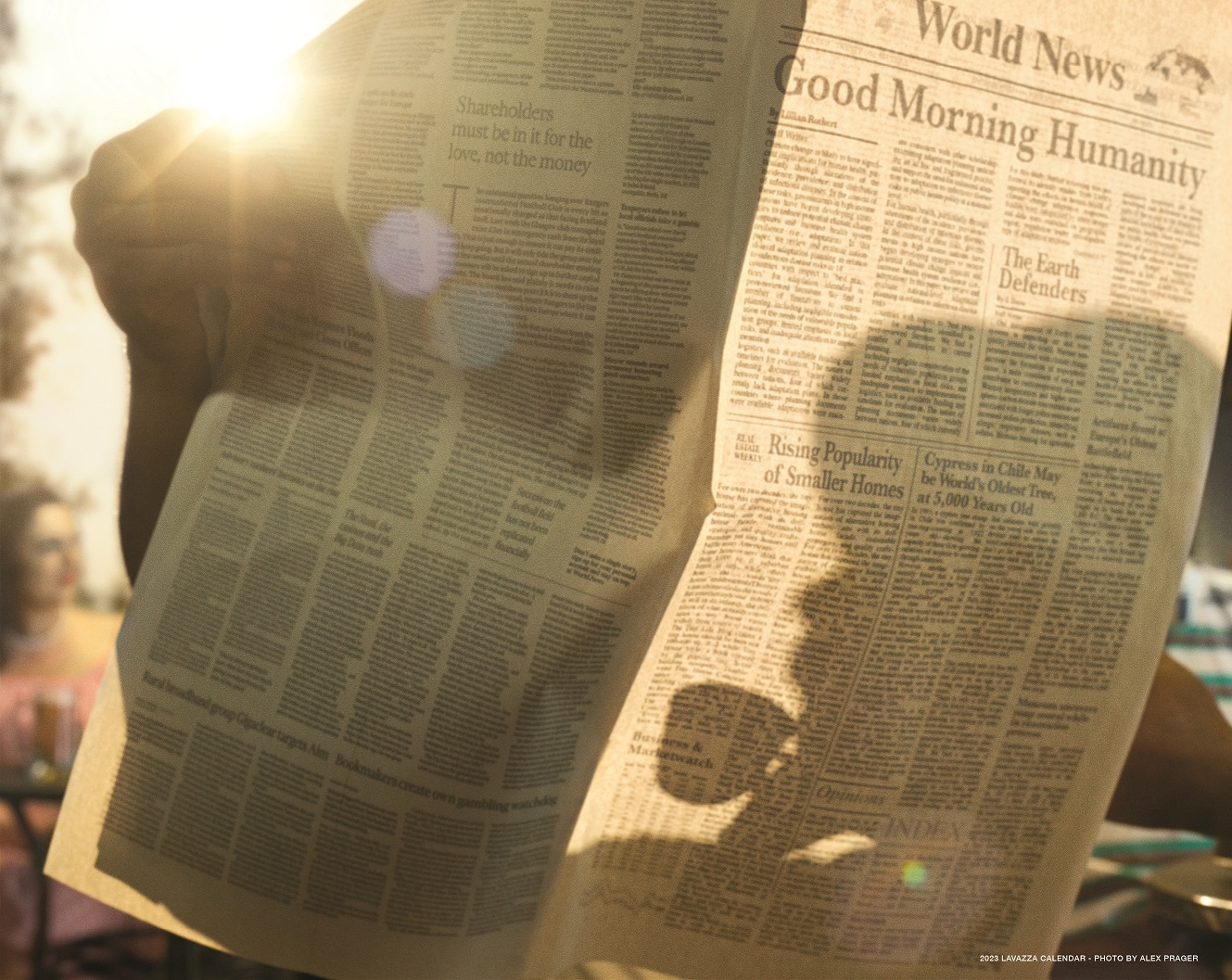Lavazza has announced the latest version of its annual calendar by Alex Prager as well as a book by Fabio Novembre by the same title, YES! we’re OPEN.
The theme of the calendar is the lounge/café setting, reminding us that humanity cannot be labelled and categorized and that it’s only through mutual respect that we can share the joy of an unexpected meeting, a smile from a stranger, the feeling of being part of the world’s theatre of inexhaustible wonders.
In the 2023 Calendar, the lounge is a place both real and metaphorical, an ambience where Alex Prager studies the uniqueness of the individual to highlight their value, thus embracing the theme of our common humanity and celebrating our differences, concepts that animate Lavazza’s vision and are so central to our world today.
Speaking about the new calendar, Francesca Lavazza, Lavazza Group board member said: “With this new art project, Lavazza intends to convey important messages about diversity and inclusion, and it does so by starting out from its own origins and base, coffee, which has always been a byword for sociality, like the countless places that serve it. Over the last ten years, the Calendar has become a sort of manifesto for us, in which we use art as a means of focusing on things we feel deeply about and are in line with the company’s vision and commitments”.
YES! we’re OPEN is an art project that aims to be an instrument of change as well. It addresses a broad public and has special focus on young people. YES! we’re OPEN has now completed an ideal trilogy on the new humanity thanks to the work of an artist with a highly personal, indeed unmistakeable visual style. It’s time to “tell new stories”, just like those in the new Lavazza Calendar.
Lavazza’s commitment to environmental issues and the relationship between art, nature and society is expressed in various artistic initiatives. Its iconic Calendar, to start with, but also the production of art on its own account and support for exhibitions staged by major cultural players.
Lavazza believes in the idea of “positive and sustainable” art in two senses: responsible art, not for its own sake but capable of raising awareness in the people it addresses, inspiring them and persuading them to adopt sustainable behaviours, and art as a forum on issues of social, environmental and economic sustainability in which intellectuals in different fields – visual artists, scientists, architects – can pool their expertise with the common objective of focusing on the search for universal human values and behaviours that protect nature.
ENDS













